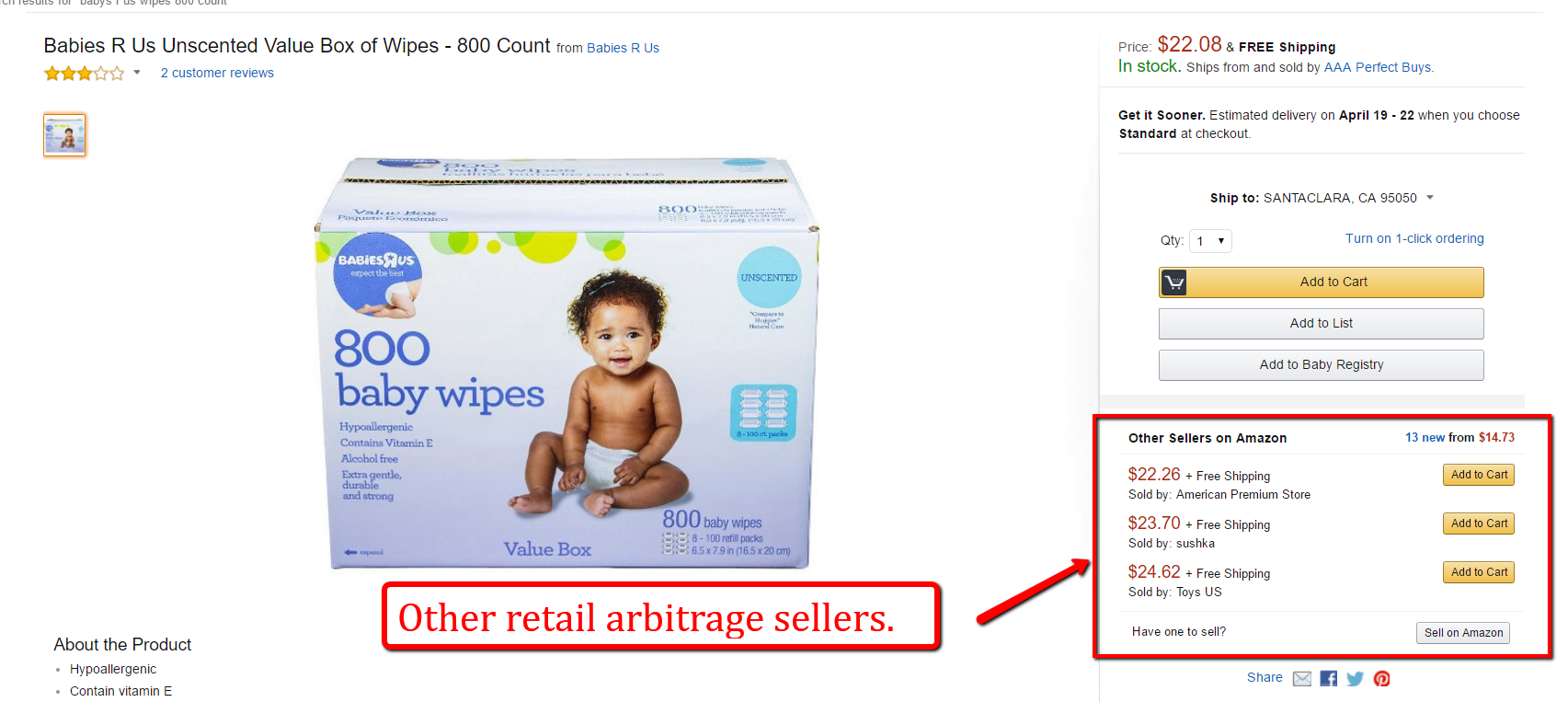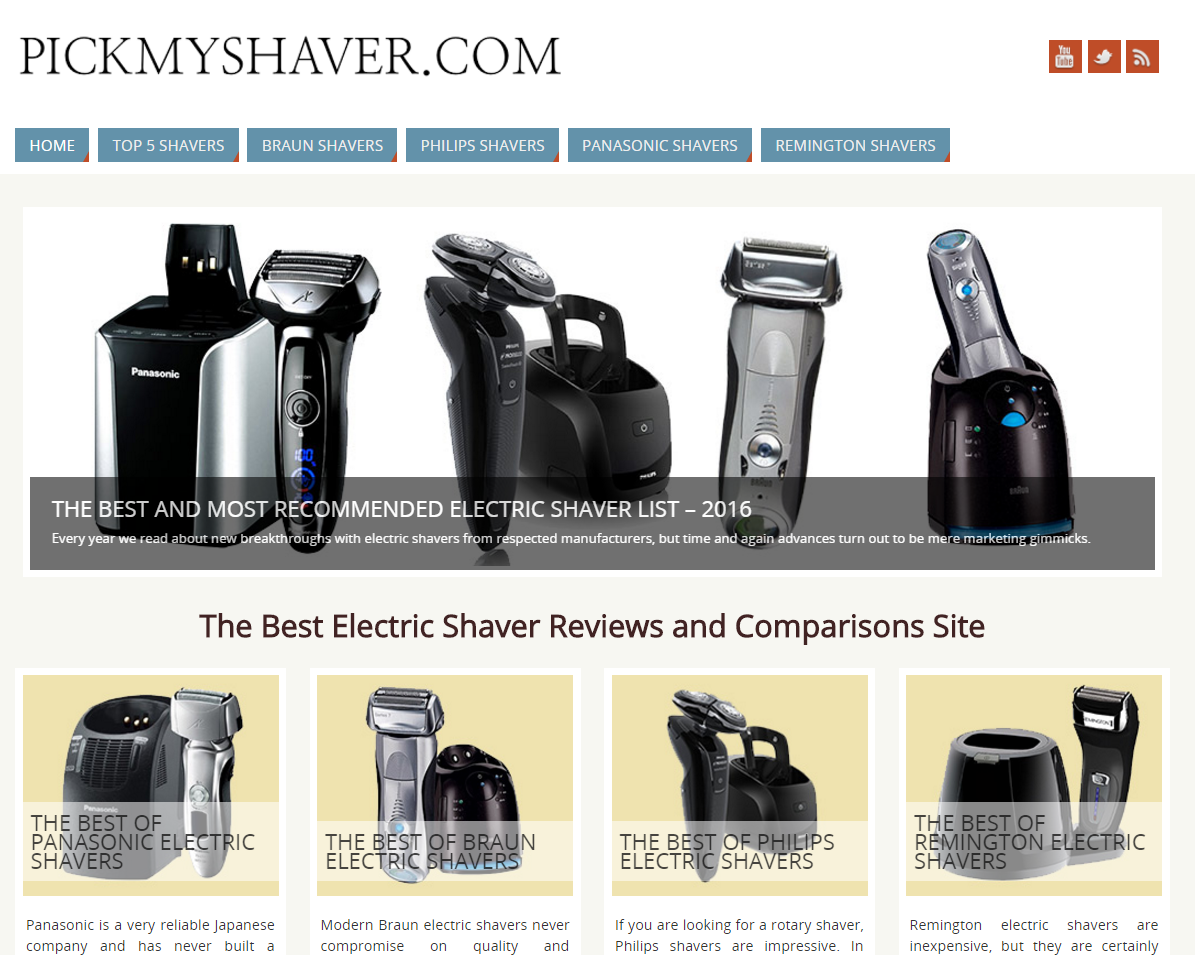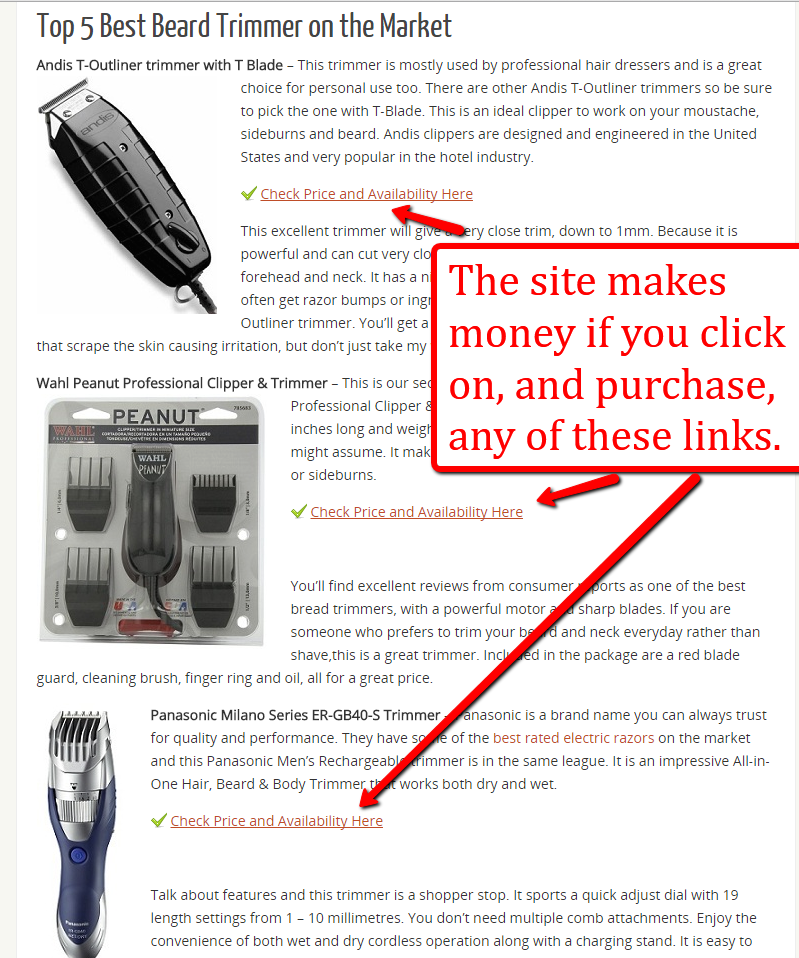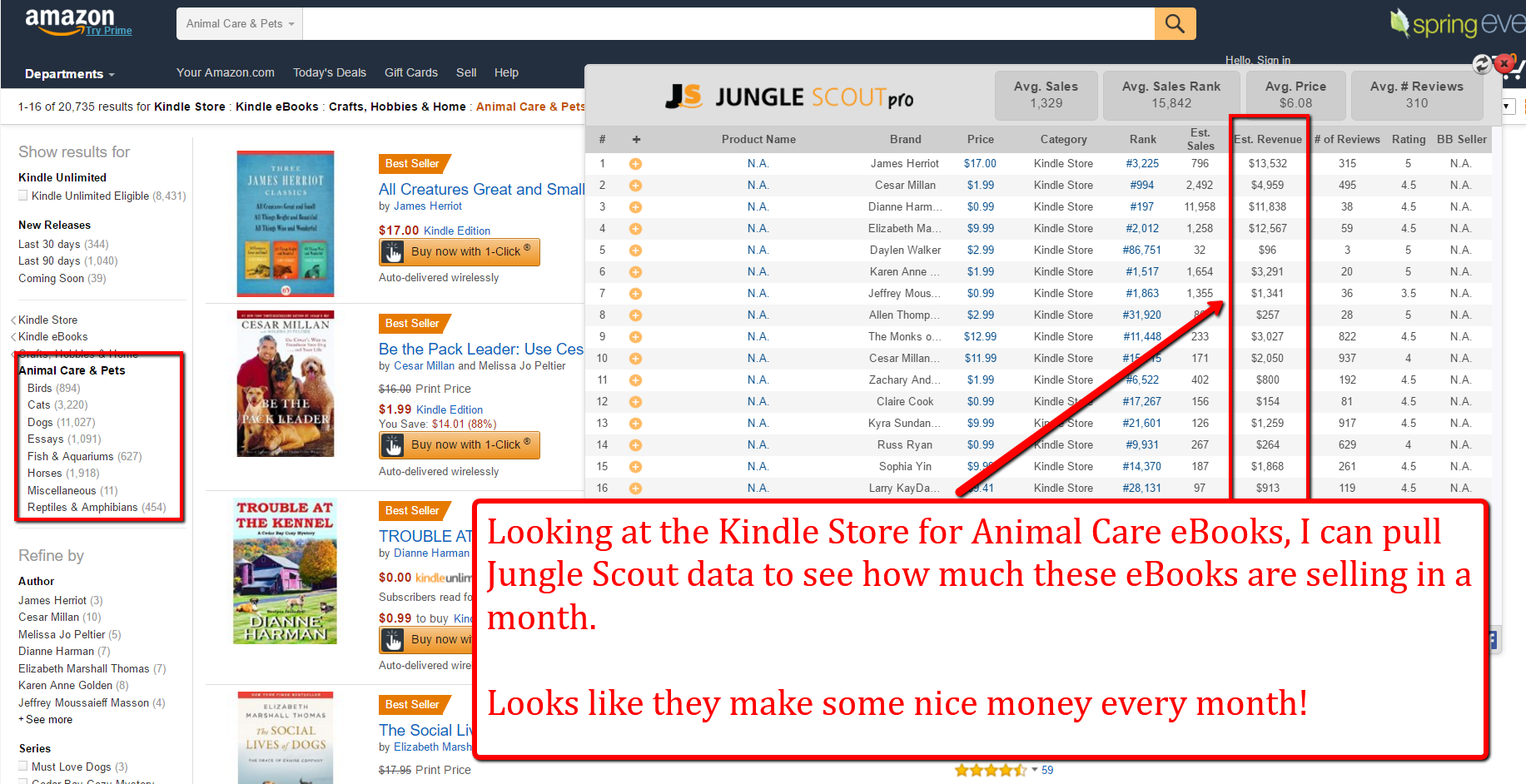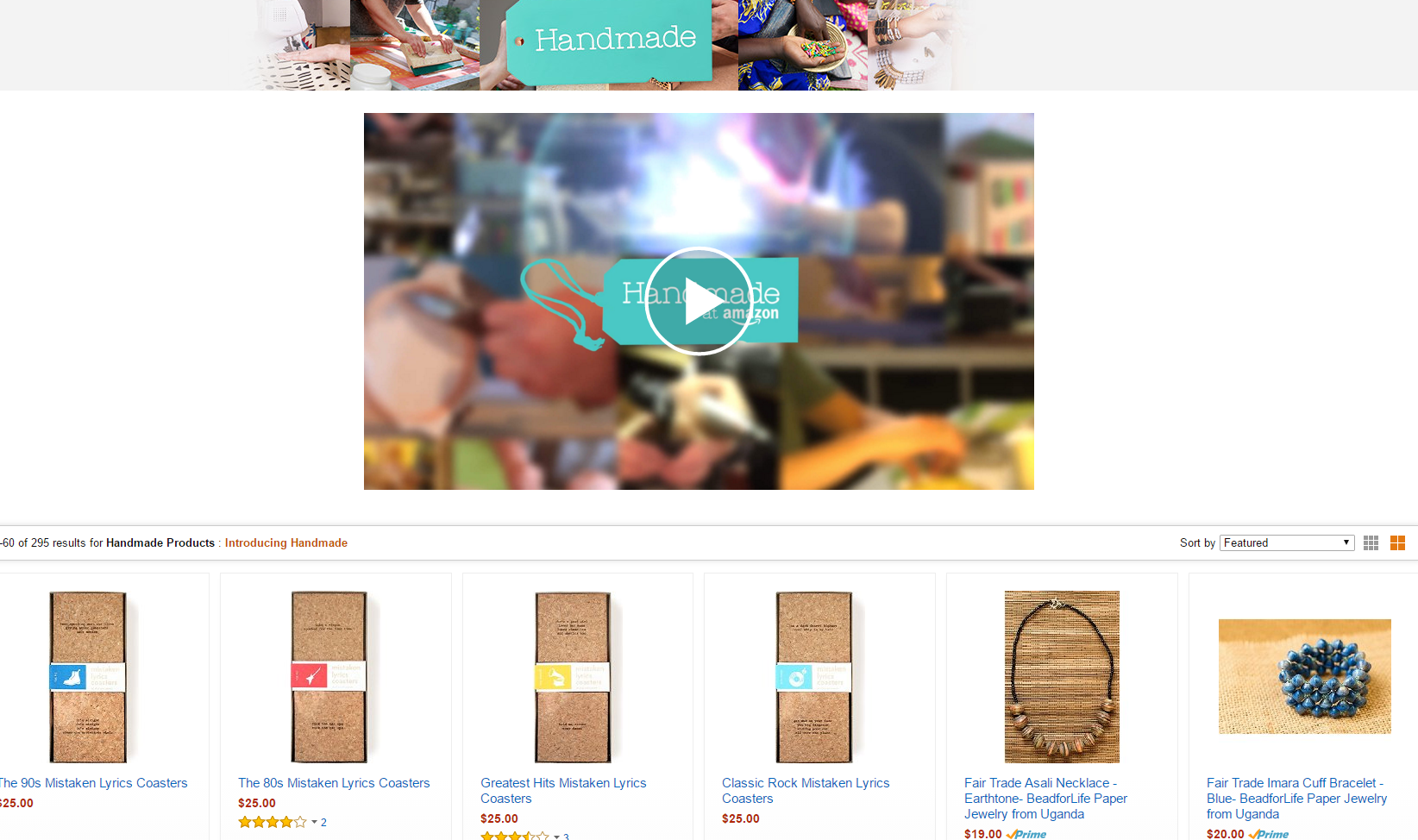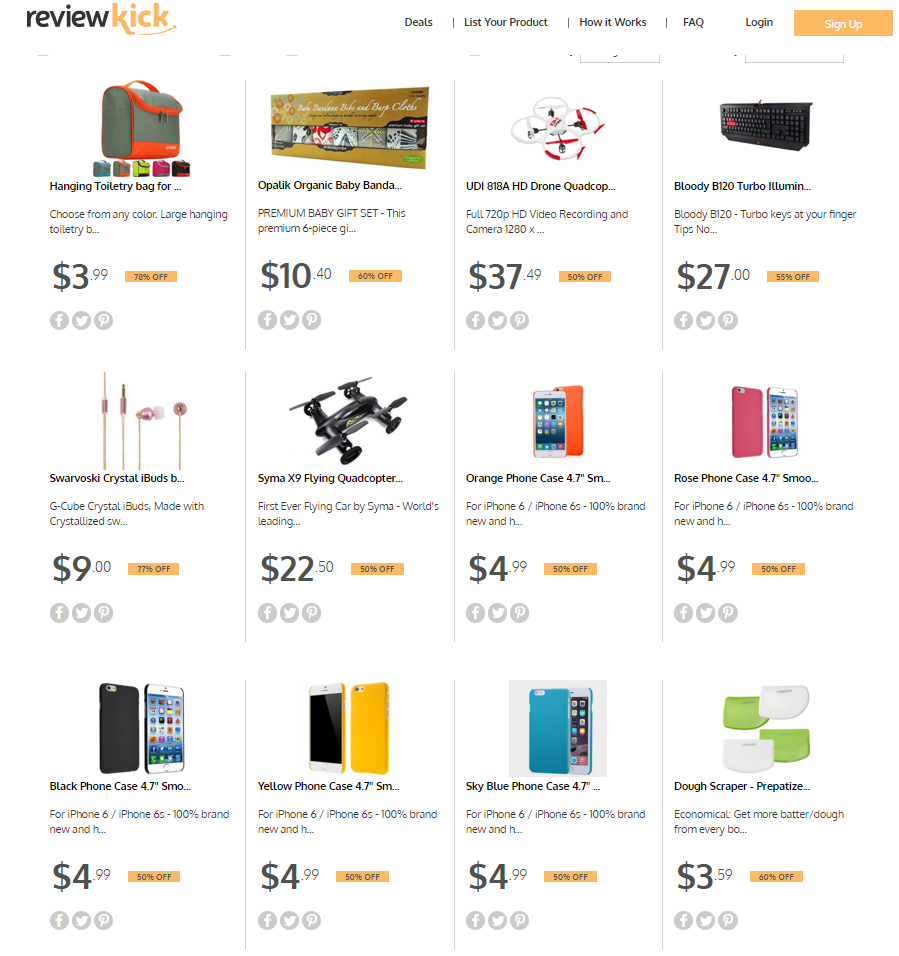Blog: 4 Ways to Be a Successful Amazon Seller
4 Ways to Be a Successful Amazon Seller
The Ways of the Amazon Seller
There are literally infinite ways to make money as an Amazon seller, and depending on how much time you devote, you could make your living selling on Amazon. The more I explore the different platforms of selling, and the creative ways people are generating sales, I see a “blue ocean strategy” opening up.
What is the “blue ocean strategy”? It is based on a book by W. Chan Kim and Renée Mauborgne from 2005, which states, “Lasting success increasingly comes, not from battling competitors, but from creating blue oceans of untapped new market spaces ripe for growth.”
I think that this is very applicable to the state of selling on Amazon, where it can get very competitive with many sellers chasing the same set pie. The Blue Ocean Strategy urges innovative thinkers to seek differentiation to find new markets and capture new demand.
This is the basis of my strategy in identifying low competition and high demand products. You can see exactly how I do that in previous videos and blog posts <INSERT LINKS>
However, in this post I want to explore some different ways that people make money on Amazon. Up to this point, much of the content that we have covered has assumed that you use Fulfillment by Amazon to sell your products.
So how can you make money on Amazon?
Sell Products: As the largest eceommerce marketplace in the world, Amazon makes it easy to sell your products online and reach millions of customers every day. There are several ways that you can sell your goods.
- Sell Retail – After purchasing your products in bulk, at wholesale prices, you sell at retail prices to Amazon customers. Your profit margin is what is left after you pay for the products, pay Amazon’s fees, and associated marketing and general expenses.
- Retail Arbitrage – Retail arbitrage is when you buy something at a store (usually at a significant discount), and then sell it on Amazon for a profit.
- Private Label – Private Label selling is when you have a product manufactured by another company and place your name, as the retailer, on the product.
Affiliate Sales: The Amazon Associates program is an online affiliate marketing program that allows websites and bloggers to promote and advertise products. If a customer clicks on their link and purchases a product, the affiliate receives a commission, up to 10% of the sale
Kindle Publishing: Amazon provides a publishing platform, called Kindle Direct Publishing, which allows authors to publish an eBook and sell on Amazon and the Kindle Store.
Do Tasks: Amazon’s Mechanical Turk platform allows people to get paid for doing individual tasks, which it calls Human Intelligence Tasks (HITs). Example tasks are data processing, website research, or image processing.
Let’s dig in to these options further and explore how a blue ocean strategy can be applied. Just a note, I have not actually made money on each of these platforms, like publish a Kindle book.
#1 Sell Products on Amazon with Retail Arbitrage:
We have spent a lot of time creating content sharing our process of launching a private label product, in blog posts, webinars, and spreadsheets.
I would like to spend some time addressing Retail Arbitrage, as I know that we have a good portion of the Jungle Scout community who make money doing Retail Arbitrage.
I think retail arbitrage is a great entry point into selling on Amazon. Retail arbitrage sellers can use the Fulfillment by Amazon services to handle inventory, pick, pack, ship, and do customer service.
The business model is very straightforward as well. Once you buy items that you believe you can resell at a significant markup, and clear profit after Amazon’s fees, then ship it to Amazon, create your listing, and let Amazon do the fulfillment once it is sold.
NPR did an interesting piece last year when they followed a professional retail arbitrage seller on his sourcing trip.
The Amazon seller came across a box of diapers that were these baby wipes:
He purchased the boxes for $16.99, with the expectation that he could resell them for $45 on Amazon. He made the calculation, purchased in bulk, and actually turned out making about $14 per unit in profit. Not a bad find!
INCLUDE SS OF JS FBA FEE CALCULATOR for this:
If you want to learn more about retail arbitrage and selling on Amazon, Pat Flynn of Smart Passive Income did a great podcast with Jessica Lerrew, who generates six figures in profit per year with retail arbitrage. That podcast link is here, which is packed with lots of actionable stuff. Jessica has a great site with lots of resources to help you learn more and get training on how to make money in the way she has. You can check out her resources here.
Here is my high level thought on Retail Arbitrage:
Pros of Retail Arbitrage:
- Low cost and upfront investment
- Buying physical assets that can be liquidated
- Low risk of losing lots of money
- Great learning experience for selling Amazon FBA
- Good way to test a new market, product, or niche
- Allows you to take advantage of spikes in seasonality and demand
Cons of Retail Arbitrage:
- Competition for Buy Box
- Limited scalability
- Lots Required time to source products
- Reliant on Amazon as sole sales channel
- Limited ways to differentiate your product/marketing
#2 Sell Products on Amazon as a Private Label Seller
Finding a profitable niche, and creating a private label product to sell in that niche, is a strategy that is becoming increasingly popular. Amazon’s platform is directly responsible for this, as it became harder for people to win the Buy Box if they were competing against other retailers selling the same exact item. And as Alibaba emerged as a one-stop shop to connect with overseas manufacturers, it made more sense financially to source and brand a private label and avoid the competition for the Buy Box.
I covered the process and strategy of finding and selling a private label product on Amazon in this infographic.
Here are some pros and cons of selling a private label product:
Pros of Private Label:
- Building an asset (your private label brand) that gains value as you invest more time and resources
- Hands-off business model with Amazon FBA—you don’t even need to ever see your product
- Opportunities to sell to other retailers or other sales channels outside of Amazon
Cons of Private Label:
- Requires more time and capital to start
- Potential challenges sourcing products and dealing with manufacturers
- Susceptible to copycat competition, underpricing, and listing hijackers
#3 Make Money as an Amazon Affiliate with Amazon Associates
The Amazon Associates program is a great means to generate income from Amazon in a scalable and replicable way. It does require that you have a some online presence, like your own site, blog, or audience where you would be referring traffic to various Amazon products with your own referral url. Once someone clicks on your trackable link, you get credit for any purchase made within 24 hours (that doesn’t include just the product that you were promoting!).
So if you are able to create a site with an audience that will purchase from your links, you could be raking in from 4-10% on any sales. This includes while you sleep, while you lie on the beach, or spend time with your family. That is the beauty of the Affiliate Program.
Here are my thoughts on Affiliate Program:
Pros of the Affiliate Program:
- Scalable
- Make money passively
- Get Free Products to Test
- Dive deep in a niche you are passionate about
- Work and Make Money Remotely
Cons of the Affiliate Program:
- Requires time and effort to build website traffic and/or audience
- Requires some marketing know-how to build site and traffic
- Subject to Amazon’s discretion – they can terminate your Affiliate Program membership at their will
Here is an example of a site that is created around a tight niche and gives readers and potential customers good information:
If I am persuaded by any of the reviews, I can simply click through on the link and purchase from Amazon. This post is an example of one that is not too salesy and pushy, while still offering helpful content:
For more information on creating niche authority sites, and building an audience, I think that Spencer Hawes has done a great job at Niche Pursuits.
He was very transparent with the launch and income of one of his niche affiliate sites, covering survival knives, which is a great resource for learning more about creating niche authority sites that you can monetize over time.
#4 Make Money as a Kindle Writer
I am not a published Kindle author, but I know that it is a great way to potentially make money in a scalable and repeatable fashion. Moreover, if you are writing about a topic that is related to your profession, it can be a tremendous boost to building your authority and credibility in the niche.
Amazon has made it very easy with it’s Kindle Direct Publishing, to have an ebook published and selling immediately.
You can make up to 70% royalty on these sales, and make money continually. If you have found a good topic and can continue to get sales, you have essentially built yourself an annuity to collect money ad infinitum!
Pros of Being a Kindle Author:
- Low upfront costs (besides your time)
- Build your personal brand as an expert in a field
- Can outsource much of the writing, editing, design, process
- Harder for new entrants to compete immediately
- Make money from anywhere, at any time
Cons of Being a Kindle Author
- Helps to have pre-launch marketing audience to launch the book to
- Hard to stand out among millions of titles
- You are forced to play by Amazon's rules
If you are looking to write your own Kindle book, you can actually use Jungle Scout to analyze demand and sales estimates in the same way you would a physical product. You can just browse the Kindle eBooks categories, dig into some sub-categories, and pull up Jungle Scout data.
You will see that as you dig deeper into a category, and define your niche and expertise carefully, you can find opportunities for books that have nice recurring sales.
For instance, I was looking in the Animal Care sub-categories, and see that there are some titles that sell quite nicely on a monthly basis:
Like I said, I am not a published kindle author, so I do not know if it is the same dynamic of finding niches that have high demand and low numbers of reviews. However, my friend Scott Voelker recently wrote a Kindle book called the Amazon Selling Blueprint which may be helpful to those still learning about the process of selling private label products on Amazon.
These days, there are sites like Blurb or Lulu that are a one-stop-shop for self-publishing. If you've ever wanted to be a published author, there is no better time than now!
Two Bonus Ways to Benefit from Amazon
Amazon Handmade:
A cool relatively new program from Amazon is called Handmade, where they sell…handmade products. Gotta love the straightforward branding! This isn’t for everyone, as not all of us are talented to craft these goods, but if you are, then you should most certainly look into it. Or even if you are looking for a fun gift for friends or family, they have some great stuff on the site.
Review Kick
You can’t necessarily make money from Review Kick, but you can get a lot of cool stuff there at significant discounts (50-100% off retail) in exchange for an honest Amazon review. And if you are an Amazon seller looking to boost the promotion of your product, you can post your product for free and get an initial promotional push.
Update October 2016: Due to changes in Amazon’s Terms of Service addressing incentivized reviews, running promotions in return for honest reviews is no longer allowed. Review Kick has now been relaunched as Jump Send, focusing on email communications to help Amazon sellers grow their business. You can still run deals and promotions, which is a great way to increase sales velocity, but we do not allow any form of incentivized review. Find out more about how Jump Send can help you boost you Amazon business in our relaunch blog post.
In Conclusion
I just wanted to cover a few high level strategies to make money on Amazon. As you can see, there are many ways to take even these few ideas and build your own location-independent business. With a focused strategy and some effort, I am positive that you can make life-changing moves by leveraging the Amazon marketplace.
Best of luck to you, please share any additional thoughts on monetizing Amazon in the comments. I always love hearing from you guys!

